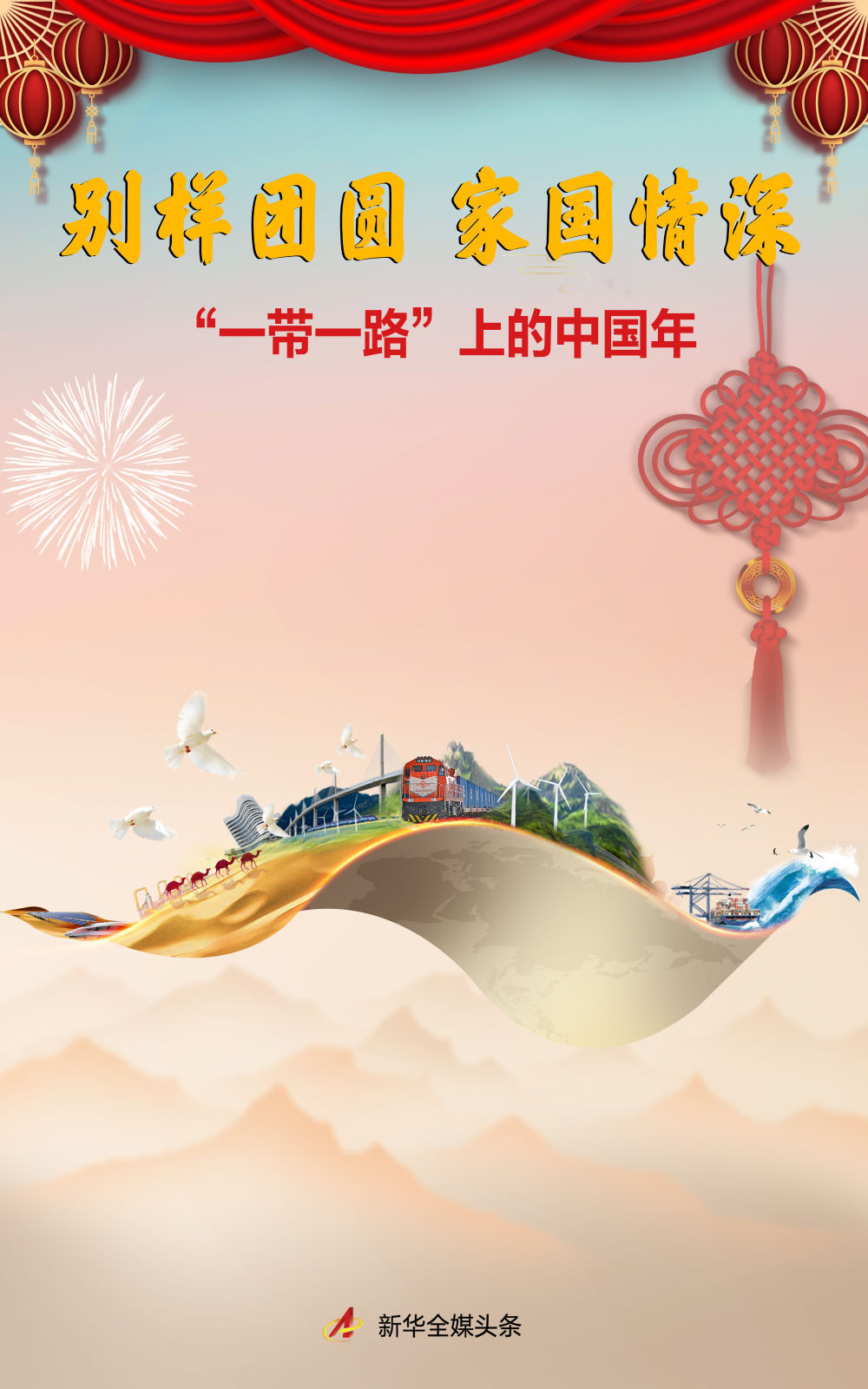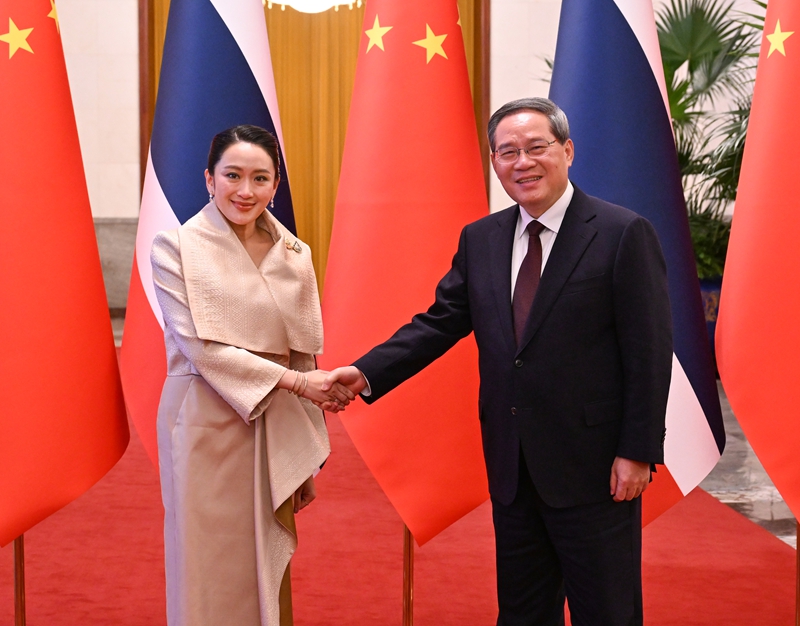Compose A Golden Chapter Of Exchanges And Cooperation Between China And Thailand
Compose A Golden Chapter Of Exchanges And Cooperation Between China And Thailand
Since the establishment of diplomatic relations between China and Thailand 50 years ago, educational exchanges and cooperation between the two countries have continued to deepen, reflected in multiple fields such as higher education, vocational education, and basic education, achieving full coverage of cooperation fields and multi-dimensional cooperation levels. 2024
Education as a bridge:
Compose a golden chapter of exchanges and cooperation between China and Thailand
Author: Ye Ruixing and Li Shengbing (respectively, teachers at the School of Educational Sciences at South China Normal University and doctoral students at the School of Education at the University of Macau; dean and professor at the School of Educational Sciences at South China Normal University)
Since the joint construction of the "Belt and Road" initiative was proposed, China-Thailand educational cooperation has continued to expand and achieved remarkable results, and has increasingly become an important link to promote people-to-people ties and promote common development between the two countries. In the process of building a China-Thailand community with a shared future, educational exchanges and cooperation, as an important part of people-to-people and cultural exchanges, are constantly showing broader development prospects and far-reaching significance.

Thai middle school students line up to sign and leave messages in the record book of China's polar scientific research icebreaker "Snow Dragon 2". Xinhua News Agency
Educational cooperation in all fields builds a bridge of people-to-people ties between China and Thailand
Educational exchanges and cooperation are the basic project for achieving people-to-people connectivity and a solid foundation for the stable development of state-to-state relations. Since the establishment of diplomatic relations between China and Thailand 50 years ago, educational exchanges and cooperation between the two countries have continued to deepen, reflected in multiple fields such as higher education, vocational education, and basic education, achieving full coverage of cooperation fields and multi-dimensional cooperation levels.
In terms of higher education, China-Thailand cooperation has been steadily advancing and has achieved remarkable results. As of the beginning of 2025, the number of Chinese students in Thailand has exceeded 28,000, accounting for more than half of the total number of foreign students in Thailand. China has become Thailand's largest source of international students. At the same time, 28,000 Thai students come to China for further study, and Thailand ranks second among the source countries of international students in China, reflecting the strong momentum, high mutual trust and good cooperation between China and Thailand in the two-way student flow. The cooperation mechanism between universities on both sides continues to deepen, and extensive cross-border educational cooperation is carried out around various joint training models such as "2 2", "3 1" and "1 3", covering undergraduate, master's and even doctoral levels. In fields such as agricultural science and technology, rail transportation, and e-commerce, many universities in my country have implemented Sino-foreign cooperative education to "go out" and "bring in" high-quality resources, improve localized school-running capabilities, and contribute to the integrated development of regional higher education. For example, the undergraduate program of Traditional Chinese Medicine jointly established by Shanghai University of Traditional Chinese Medicine and Overseas Chinese Chongsheng University created Thailand's first higher education major in Traditional Chinese Medicine. Some universities have also innovatively explored the implementation of teaching in Thailand in the form of overseas school sites. For example, Yunnan Open University has cooperated with the University of Northern Thailand to establish overseas teaching sites for undergraduate majors such as logistics management, finance, and preschool education to form localized training programs.
Vocational education cooperation is a landmark highlight of China-Thailand educational exchanges and cooperation. In 2013, the two sides signed the "Memorandum of Understanding on Strengthening Cooperation in the Field of Vocational Education between the Ministry of Education of the People's Republic of China and the Ministry of Education of the Kingdom of Thailand" to provide institutional guarantee for cross-border vocational education cooperation. In 2016, the first Luban Workshop was launched in Thailand, and China and Thailand continue to promote the integration of "Chinese vocational skills" education. In 2023, they will jointly establish the "Sino-Thai Language and Vocational Education College" and launch a double degree project and an international internship base. Vocational education cooperation has become a link to promote industrial upgrading and optimal allocation of human resources, providing strong support for the integration of development strategies between the two countries. In addition, the "China-Thailand Vocational and Technical Education Cooperation 210 Project" project introduces 210 Chinese majors into the Thai vocational and technical education system through a Chinese-foreign dual-degree cooperative education model, achieving in-depth docking in terms of subject construction, teacher training, and curriculum sharing, and promoting the formation of an institutionalized, project-oriented, and professional cooperation pattern.
At the level of basic education, China-Thailand cooperation started early, has a solid foundation, and has yielded results. Since the launch of the International Chinese Education Volunteer Project in 2003, China has sent more than 20,000 Chinese teachers and volunteers to Thailand, which are widely distributed in primary and secondary schools and educational institutions at all levels in Thailand, injecting continuous momentum into the development of Chinese teaching in Thailand’s basic education stage. In recent years, Chinese courses have entered the classrooms of universities, middle schools and primary schools in Thailand and become one of the important foreign language options. Chinese education has not only entered campuses and classrooms, but has also entered Thai palaces, government agencies and communities.
The continued advancement of educational cooperation not only promotes talent exchanges and academic mutual learning, but also enhances the understanding and emotional connection between the two peoples on a deeper level. More and more Thai young people are learning Chinese and studying in China, gaining an in-depth understanding of Chinese culture and social development, and becoming new ambassadors of China-Thailand friendly relations. Many Chinese young people go to Thailand for exchanges and learn Thai, experiencing local social conditions and cultivating humanistic friendship. Education is the most lasting and effective link to promote people-to-people ties. China-Thailand educational cooperation has moved from "language interoperability" to "spiritual integration" and from "system docking" to "humanistic integration", becoming a solid pillar for the construction of a China-Thailand community with a shared future.

Thai theatrical performance at the 2025 China-ASEAN Education Exchange Week International Cultural and Art Exchange Performance Event. Xinhua News Agency
Aligning development strategies to build a high-quality Sino-Thailand education cooperation platform
The fundamental reason why China-Thailand education cooperation can continue to deepen and achieve steady and long-term development lies in the highly consistent development strategies of both sides and the improvement of cooperation mechanisms. At present, with the deepening of the construction of a community with a shared future between China and Thailand, educational exchanges are increasingly transforming and upgrading from the initial cultural exchange visits and language teaching to multi-field, multi-level, sustainable and high-quality cooperation.
From the perspective of strategic needs, Thailand is actively implementing the "Thailand 4.0" strategy and the "Eastern Economic Corridor" plan, accelerating the transformation and upgrading from resource-driven to innovation-driven, focusing on emerging industries such as biotechnology, smart manufacturing, and green energy, which requires a large number of high-quality talents who master modern technology and have an international perspective. The joint construction of the "Belt and Road" initiative emphasizes equal emphasis on the "five links" and provides broad space for cooperation between China and Thailand in human resource development, education system coordination, and talent flow mechanisms. The strategies of both parties are highly consistent and their goals are converging. On this basis, the China-Thailand education cooperation mechanism has been continuously upgraded, extending from bilateral agreements to a multi-level implementation system. At the policy level, the two sides have signed multiple documents such as the "Memorandum of Understanding on Cooperation in Higher Education" and the Agreement between the Ministry of Education of the People's Republic of China and the Ministry of Education of the Kingdom of Thailand on the Mutual Recognition of Higher Education Qualifications and Degrees, which clarified core contents such as mutual recognition of academic qualifications, course docking, exchange of teachers, and joint construction of platforms, providing a legal and institutional basis for cooperation. In terms of execution mechanism, cooperation is shifting from being dominated by a single department to being promoted collaboratively by the three parties of "government, universities, and enterprises". Using the China-Thailand University Principals Forum, the China-Thailand Vocational Education Alliance, etc. as carriers, a normalized communication platform has been built to strengthen the docking of universities and the implementation of results.
The construction of the cooperation platform has enabled China-Thailand education to move towards a track that can be followed, evaluated and supervised, and can be promoted sustainably. The systematization of the cooperation platform is becoming an important guarantee for driving in-depth cooperation in education between China and Thailand and serving the docking of the development strategies of the two countries. In the future, the education cooperation platform will also upgrade from project-based to systematic, and from loose collaboration to mechanism collaboration.

The Confucius Institute at Chulalongkorn University in Thailand offers summer Chinese interest classes for students. Photo courtesy of Guangming Daily reporter Wang Sicheng
Digital education cooperation promotes the development of digital technology between China and Thailand
China and Thailand have long maintained close cooperation and mutual support in the digital field. Since China proposed the "Digital Silk Road" initiative in 2015, the initiative has formed a positive interaction with the "Thailand 4.0" industrial transformation strategy. The areas of cooperation have gradually expanded from the initial infrastructure such as submarine optical cables, Internet data centers, and satellite ground stations to emerging frontier fields such as 5G, artificial intelligence, cloud services, and big data. In 2016, Huawei set up its Southeast Asia headquarters in Bangkok, Thailand. Subsequently, a number of Chinese technology companies such as Alibaba, Tencent, China Mobile, and JD.com also invested in Thailand to help build the "Eastern Economic Corridor Digital Park" and "Thailand Digital Valley" and help Thailand build a regional digital hub and innovation platform.
The deep integration of digital technology and education system is pushing China-Thailand cooperation towards a stage of institutionalization and institutionalization. In 2022, the two countries issued the "China-Thailand Joint Statement on Building a More Stable, More Prosperous, and More Sustainable Community with a Shared Future" and signed five bilateral agreements including scientific and technological cooperation, involving many key areas such as artificial intelligence, data science, information technology, and robotics.
In 2023, at the fifth China-Thailand Higher Education Cooperation Forum, the two parties initiated the establishment of the "China-Thailand University Digital Education Development and Cooperation Professional Committee" and the "School-Enterprise Cooperation Professional Committee".
In 2024, the "China-Thailand Vocational Education Cooperation and Development Seminar" was held in Chiang Mai and the "Chiang Mai Digital Initiative" was released, which clearly proposed to deepen the enabling application of digital technology in the education system by building a curriculum system, sharing platform resources, and promoting the integration of industry and education, marking that China-Thailand education digital cooperation has entered a new stage of mechanism construction and framework coordination.
Facing the future and jointly writing a new chapter for China-Thailand cooperation
The world today is undergoing major changes unseen in a century. Education is not only a basic project for national development, but also a bridge and link for international cooperation and peaceful coexistence. Looking to the future, China-Thailand education cooperation should adhere to the "five keys": consensus, sharing, co-construction, co-education and win-win. First, deepen strategic consensus. Continue to strengthen the docking of education policies between China and Thailand, strengthen top-level design and mechanism linkage, and promote the integrated development of education, science and technology, and talents in both countries. The second is to promote resource sharing. Accelerate the construction of the "China-Thailand Education Cloud Platform", integrate curriculum systems, teaching resources and teachers, achieve information exchange, resource sharing, and platform interconnection, and promote the flow and sharing of educational resources on a larger scale. The third is to promote the joint construction of mechanisms. Establish an annual forum for university principals from China and Thailand and a joint mechanism for vocational education to promote bilateral education planning consultations on a regular basis. Relying on platforms such as the "China-Thailand Language and Vocational Education Institute", we promote the co-production of curriculum standards, co-promotion of teacher training, and co-construction of practice bases to form a closed-loop mechanism chain from policy guidance to teaching implementation. The fourth is to strengthen joint education of talents. Focus on the detailed implementation of the "China-Thailand Vocational and Technical Education Cooperation 210 Project", promote the effective connection between China's 210 high-quality majors and Thailand's local education system, and form systematic solutions in key aspects such as curriculum standards, teaching material construction, and internship training. Through the construction of professional alliances, industrial colleges and other forms, we will promote a virtuous cycle of "co-construction-co-education-sharing". The fifth is to achieve win-win development. Using educational cooperation as a link, we will drive the linkage and integration between China and Thailand in the fields of economy, science and technology, humanities and other fields, promote coordinated regional development and deep integration of people's hearts, and jointly create a vivid example and typical sample of China-Thailand community with a shared future in the field of education.
Fifty years of spring and autumn, fifty years of watching and helping each other. China-Thailand educational cooperation is not only a vivid reflection of "China and Thailand are one family", but also a solid pillar for building a China-Thailand community with a shared future. Looking back, education has always occupied a fundamental and strategic position in the overall cooperation between the two countries. From language teaching to higher education, from vocational training to digital empowerment, education has continuously built a bridge between the people. Looking to the future, China and Thailand should continue to use education as a link, technology as an engine, and talents as support to create a more diversified, open, and systematic cooperation pattern. This will effectively promote the high-quality development of educational cooperation, write a golden chapter of win-win cooperation, mutual learning, and people-to-people bonds, and contribute wisdom and strength to the construction of a community with a shared future for mankind.
"Guangming Daily" (page 14, October 16, 2025)





